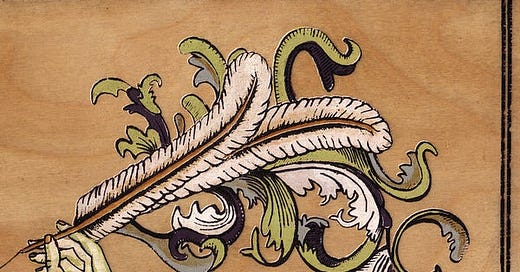Our previous entry from Patti Smith’s debut1, Horses, left us on a note of sadness, dwelling on what happens when friends, colleagues and contemporaries can no longer be with us. On Funeral, Arcade Fire, or specifically Regine Chassagne2, tell us what it is like when a family member is no longer with us.
It’s hard to remember the gap between releases in different markets now in our streaming world with simultaneous releases, but Funeral was released in September 2004 in North America and went toe-to-toe with Kanye West, Franz Ferdinand, The Streets, Brian Wilson and Loretta Lynn at the top of the end-of-year charts. Which is all well and good. Except here in the UK, the album didn’t come out until Feb 2005, and end-of-year conversations for NME, Mojo and Uncut were comparing it to Sufjan, Bloc Party, Kate Bush and Antony and The Johnsons.
So you won’t be surprised to read I was unable to legally obtain a copy in late 2004 when I could read all the effusive praise, especially Pitchfork’s 9.7 review, so my first exposure to the record was borrowing it from Soulseek3 and hearing via my Creative Zen MP3 player I’ve now frequently mentioned.
If we take things literally ‘In The Backseat’ is a song about Régine getting a taxi to her mother’s funeral because she couldn’t drive; in the credits of the album, Régine’s mother’s name is listed as Marie-Alice Chiappini Chassagne, and she died in 1999, age 51. The song works better when considered a metaphor for who is in charge of your life and who is driving. Régine Chassagne was 23 in 1999, so I can well imagine that she didn’t particularly feel like an adult at that point.
So we can understand the idea that her life before her mother’s death4 was with her sitting in the car’s back seat, watching the world go by out the window and moving through life, knowing that a steady hand is guiding her from the front. Suddenly, she is crashing towards the driving seat and having to take the wheel much earlier than she thought she would need to, and she can no longer sit in the backseat even if she wants to. Chassagne didn’t know it, but she was inched closer to the driver’s seat and given the life skills to “drive her own car”. Like most people, she doesn’t feel ready when she has to grasp the wheel.
Away from the backseat lyrics, we have a call back to the lightning bolt that Chassagne wielded in ‘Wake Up’. It was used as a light of reason there; here, it is a bolt from the blue that shocks, changes your whole world, shakes your core, and leaves you feeling vulnerable. If it wasn’t clear, we are talking about the death of a loved one, confirmed by Chassagne’s Björk-like trilled vocal on her family tree, losing leaves as another metaphor.
For an album called Funeral, there is a lot of optimism on the record. Much of it is bittersweet and in the context of death, loss or guilt, such as in ‘Crown of Love’. Some of it is almost gallows humour from the band losing three close family members while it was recorded. On this closer, the song's melancholy starts to fall away and rouses into something more optimistic before the very end5. While it is swimming in loss, there is a sense of some comfort from the opportunity to become the master of your destiny; we can feel this as the song moves from an intimate, raw piano ballad to a wide-screen, cinematic epic that, without wanting to sound crass, dials up the solemn, swooning and peaceful violins into something more chaotic and intense alongside the abrasive guitar crunches, much like a car crash coming out of the blue.
This entry is dedicated to my incredible wife, Stephanie, who lost her mother at 21.
Interesting to have two debut albums back to back; we are at a point in the Acclaimed Music list where only three are left.
I know that there is a prominent band member in the news at the moment - as per editorial policy here, that's not something we will focus on.
I bought a CD copy in 2005 and a vinyl copy before the decade close, so I don’t think piracy won out in the long run.
Adding even more weight to this song is that her mother was killed in a car crash.
The ultimate end of this song and the album is a sad note, with Chassagne screaming out for her sister, Norah.





Beautiful piece, Mitchell. So sorry to hear about your wife losing her mother at such a young age.